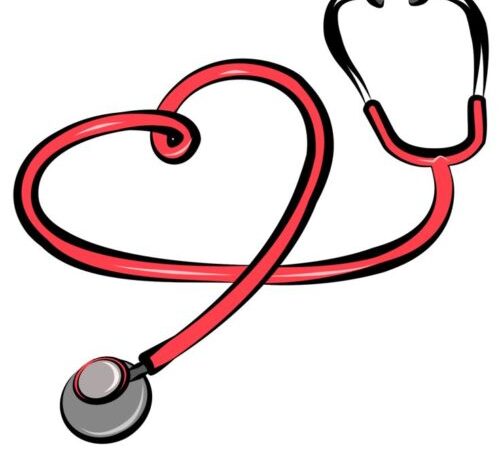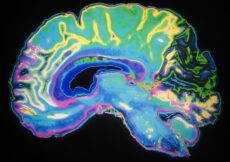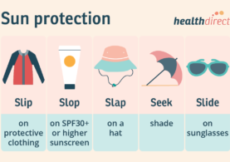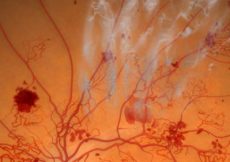May 12th, 2022
May is Mental Health Awareness Month
Over the past three days we’ve examined the disturbing trend of declining mental health in young Americans. Yesterday we learned that the rise of anxiety, depression, eating disorders, and other mental health conditions predates the onset of the COVID-19 pandemic by more than a decade.
Surveys of medical providers who care for kids and families in despair indicate a generation of health professionals pushed to the limit during the pandemic. When Jennifer Abassi notes that 1 in 5 physicians (20%) say they intend to leave clinical practice, you can sense the damage COVID-19 has inflicted on the soul of medicine:
Over the past 2 years, more than 36 ,000 survey responses from clinicians across the country have painted an alarming picture of a workforce that’s increasingly burned out, traumatized, anxious, and depressed. As Green Center codirector Rebecca S. Etz, PhD, summed up her survey’s findings in a recent interview with JAMA, “It’s been bad for primary care over the pandemic and it’s getting worse.”
According to the Quick COVID-19 Primary Care Survey conducted from February 25-March 1, 2022, the degree of sadness, frustration, and burnout among primary care physicians is high:
• Almost half (46%) of clinicians who were surveyed said primary care is “crumbling.”
• More than 40% admitted to being mentally and financially fragile, a rate that hasn’t changed since the beginning of the pandemic more than two years ago.
• Less than 25% of primary care doctors say that their practices are fully staffed.
• One third of primary care doctors complain about financial stress when insurers fail to reimburse them on time or deny care that was already provided.
Burnout, stress, and fatigue are common themes expressed by the survey’s respondents:
• Primary care keeps getting worse. Sicker patients, ridiculous documentation, omicron. I’m sad there appears no end in sight. CA
• I cannot continue to work at this pace and retire at 65. I am 50. I am chronically exhausted. There is no relief in sight. CO
• We have gone above and beyond for COVID. Tested and vaccinated anyone in our community. The reimbursement is hit or miss. Kids get sick with a preventable illness. I haven’t been able to go to my own clinic for more than 3 weeks due to severe moral distress and burnout. The final straw, sitting with a father (as I cared for his 5yo son) whose mask read, “This mask is as useless as the idiots requiring me to wear it”. After 34 years of clinical practice, my heart is broken to think it all ends like this. CO
• I own my practice and we are drowning — payroll has increased 30% with fewer employees! We are unable to recruit, especially nursing staff and can’t afford the higher costs. Primary care needs help! MA
• We were in trouble before. It has only gotten worse during the pandemic. Primary care has historically been the final common pathway for all of the things that no one else is willing to do. We are exhausted. MA
Being a physician has for quite some time been an occupational health hazard, writes pediatrician Seema Jilani:
A systematic review and meta-analysis published in 2015 in The Journal of the American Medical Association found that roughly 29 percent of resident physicians experienced depression or depressive symptoms. For context, from 2013 to 2016, 8 percent of Americans age 20 or older had depression in any given two weeks. In a study published in August 2019, 16 percent of emergency physicians met the criteria for a post-traumatic stress disorder diagnosis. The pandemic seems to have made things worse: A survey conducted in the fall of 2020 and presented at the American Psychiatric Association suggested that as many as 36 percent of frontline physicians suffered from PTSD.
Suicide rates among physicians and other health care personnel are astonishing:
Doctors also have a high risk of death by suicide compared to many other professions. An estimated 300 to 400 physicians die by suicide in the United States every year — about a doctor a day. Last year officials at a hospital in New York confirmed that two doctors in its residency program killed themselves within months of each other.
It’s no wonder why mental health among medical providers has deteriorated during the pandemic:
As we enter the third year of the pandemic and creep toward one million dead Americans, it’s time for American health care to recognize the toll on its doctors and what it owes. The past two years have been characterized by violent attacks against doctors, accompanied by even longer hours, sicker patients, limited hazard pay and family sacrifices. A survey conducted in the second half of 2020 found that around one-fifth of doctors were considering leaving their practice within two years. Perhaps the saddest part is that the doctors we are often losing are the very ones we need: the gentle ones who you want holding your mother’s hand, the thoughtful, meticulous ones who call you on their day off.
Dr. Jilani describes the stigma associated with mental illness that stubbornly persists among health professionals working in clinics, in hospitals, and in the exam room with patients:
An often unspoken rule: If you must seek mental health care, do it quietly. Find a therapist outside your city who documents only the bare minimum in your chart, pay with cash only, don’t let it be billed to your insurance company. Make sure there’s no paper trail.
Read the rest of Dr. Seema Jilani’s article, “Why So Many Doctors Treat Their Mental Health In Secret” here.
The PediaBlog has visited the sensitive topics of physician burnout and suicide here, here, and here.
National Suicide Prevention Lifeline
(24/7 — All calls confidential)
1-800-273-8255 (TALK)
Beginning on July 16, 2022, simply dial 988




































